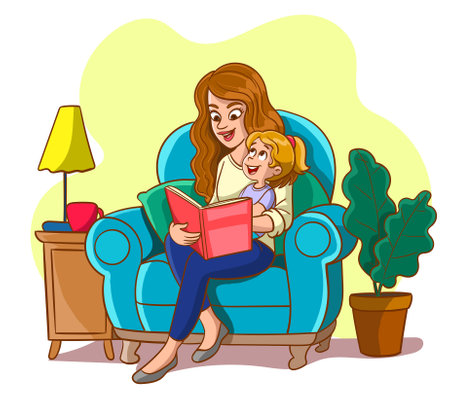1. Understanding Co-Parenting Challenges
Co-parenting comes with its fair share of challenges, especially when emotions run high and differing perspectives come into play. Many co-parents struggle with communication, parenting style differences, and unresolved emotional conflicts. Understanding these common difficulties can help you navigate them more effectively.
Communication Breakdowns
One of the biggest struggles in co-parenting is maintaining clear and respectful communication. Misunderstandings, lack of responsiveness, or hostile interactions can create frustration and negatively impact the children involved.
Common Communication Issues:
| Issue | Description |
|---|---|
| Lack of Consistency | Messages are unclear or change frequently, leading to confusion. |
| Hostile Tone | Conversations become aggressive or accusatory instead of solution-focused. |
| Avoidance | One or both parents refuse to communicate, making co-parenting difficult. |
Differences in Parenting Styles
No two parents will have identical approaches to parenting, but when those differences are extreme, they can lead to conflict. One parent may be more lenient, while the other enforces stricter rules. These inconsistencies can confuse children and cause tension between parents.
Navigating Parenting Style Differences:
- Find Common Ground: Focus on shared values like education, discipline, or emotional well-being.
- Create a Parenting Plan: Establish guidelines for rules, discipline, and expectations to maintain consistency.
- Avoid Undermining Each Other: Present a united front to prevent children from feeling caught in the middle.
Emotional Conflicts Between Co-Parents
The emotional history between co-parents can make collaboration difficult. Feelings of resentment, anger, or sadness may linger from past relationships, making it hard to work together effectively.
Coping with Emotional Challenges:
- Focus on the Child: Keep discussions centered on what is best for your child rather than personal grievances.
- Set Boundaries: Establish clear boundaries to keep interactions professional and productive.
- Consider Professional Support: Therapy or mediation can help resolve lingering emotional conflicts and improve co-parenting communication.
Navigating these challenges takes patience and effort, but acknowledging them is the first step toward creating a healthier co-parenting dynamic. In the next section, we’ll explore how therapy can provide valuable tools for overcoming these obstacles.
2. The Role of Therapy in Co-Parenting
Co-parenting can be challenging, especially when emotions run high and communication breaks down. Therapy provides a neutral space where both parents can express their thoughts, concerns, and frustrations without fear of judgment. A professional therapist helps facilitate these conversations, ensuring they remain productive and focused on the well-being of the child.
Creating a Neutral Space for Communication
One of the biggest benefits of therapy in co-parenting is that it offers a structured and neutral environment. This allows both parents to communicate openly without past conflicts taking over the discussion. A therapist serves as a mediator, guiding conversations toward positive solutions instead of letting disagreements escalate.
Developing Effective Conflict-Resolution Strategies
Disagreements are inevitable in co-parenting, but how they are handled makes all the difference. Therapy teaches essential conflict-resolution strategies that help parents navigate difficult situations while maintaining respect for each other. Some common techniques include:
| Conflict-Resolution Strategy | Description |
|---|---|
| Active Listening | Encourages both parents to listen without interrupting, ensuring they fully understand each others perspectives. |
| I-Statements | Helps parents express their feelings without blaming the other parent (e.g., “I feel frustrated when…”). |
| Problem-Solving Techniques | Guides parents through step-by-step solutions rather than focusing on past mistakes. |
| Setting Boundaries | Defines clear expectations and limits to avoid misunderstandings and reduce tension. |
The Benefits of Professional Guidance
A trained therapist provides valuable insights that help parents see beyond their personal conflicts and focus on what truly matters—their childs well-being. Through therapy, parents can learn to work as a team, even if they no longer share a personal relationship. This creates a more stable and supportive environment for the child, reducing stress and anxiety associated with parental conflicts.

3. Signs That Indicate Professional Help is Needed
Co-parenting comes with its fair share of challenges, and while many disagreements can be resolved through open communication, some issues may require professional intervention. Recognizing when to seek help is crucial for maintaining a healthy co-parenting relationship and ensuring the well-being of your children.
Persistent Disagreements
It’s normal for co-parents to have occasional differences in parenting styles or decisions. However, if conflicts become a recurring issue and resolutions seem impossible, therapy might be beneficial. Constant arguments over discipline, schedules, or major life decisions can create a stressful environment for both parents and children.
Emotional Distress
Co-parenting should not take a severe emotional toll on either parent. If one or both parents experience ongoing stress, anxiety, or resentment due to their interactions, it may be time to seek professional guidance. Emotional distress can negatively impact decision-making and overall well-being.
The Impact of Conflict on Children
Children are highly perceptive and can sense tension between their parents. If your child exhibits signs of stress—such as changes in behavior, trouble sleeping, or difficulty concentrating at school—it may indicate that parental conflict is affecting them. Therapy can provide strategies to create a more harmonious co-parenting environment.
Key Indicators That Therapy May Be Necessary
| Indicator | Description |
|---|---|
| Frequent Arguments | Disagreements that happen often without resolution. |
| High Emotional Stress | Anxiety, frustration, or sadness resulting from co-parenting interactions. |
| Negative Impact on Children | Behavioral changes in children due to parental tension. |
| Lack of Effective Communication | Difficulties in discussing important matters calmly and productively. |
| Inability to Reach Compromises | A pattern of unresolved disputes over parenting decisions. |
When to Seek Help
If any of these indicators resonate with your situation, it might be time to consider seeking professional support. A therapist specializing in co-parenting can help improve communication, mediate conflicts, and provide tools to foster a healthier dynamic between both parents.
4. Types of Therapy for Co-Parents
When navigating the challenges of co-parenting, seeking professional support can be incredibly beneficial. Different types of therapy offer unique approaches to improving communication, resolving conflicts, and fostering a healthier parenting partnership. Below are some common therapeutic options for co-parents:
Family Therapy
Family therapy focuses on improving relationships within the family unit, including co-parents and children. A licensed therapist helps facilitate discussions, mediate conflicts, and provide tools for better communication. This approach benefits co-parents by ensuring that their interactions remain child-focused and constructive.
Mediation
Mediation is a structured process where a neutral third party helps co-parents reach agreements on key issues such as custody schedules, decision-making, and conflict resolution strategies. Unlike traditional therapy, mediation is often more solution-oriented and aims to create legally binding agreements when necessary.
Individual Counseling
Sometimes, personal struggles or emotional wounds from the past can affect co-parenting relationships. Individual counseling provides a space for each parent to work through personal challenges, manage stress, and develop healthier coping mechanisms. This form of therapy can lead to improved interactions between co-parents by addressing underlying personal issues.
Comparison of Therapy Options
| Type of Therapy | Main Focus | Key Benefits |
|---|---|---|
| Family Therapy | Improving overall family dynamics | Enhances communication between co-parents and children |
| Mediation | Resolving disputes and reaching agreements | Avoids legal battles and promotes cooperative decision-making |
| Individual Counseling | Addressing personal emotions and stressors | Helps parents develop healthier coping strategies |
5. How to Find the Right Therapist
Finding the right therapist for co-parenting can feel overwhelming, but with the right approach, you can make a choice that benefits both parents and, most importantly, your child. Here’s how to ensure you choose a qualified professional who fits your needs.
Credentials to Look For
Not all therapists have the same qualifications, so it’s essential to check their credentials before making a decision. Look for professionals with relevant experience in family or co-parenting therapy.
| Credential | Description |
|---|---|
| LMFT (Licensed Marriage and Family Therapist) | Specializes in family dynamics and relationships, including co-parenting challenges. |
| LCSW (Licensed Clinical Social Worker) | Trained in counseling and social work, often with experience in mediation and family support. |
| PsyD/PhD (Doctor of Psychology) | A psychologist with expertise in mental health and relationship counseling. |
| Mental Health Counselor (LPC/LPCC) | A licensed counselor trained to help individuals and families navigate emotional challenges. |
Questions to Ask Potential Therapists
Once you’ve identified a few therapists with the right credentials, schedule an initial consultation. Here are some key questions to ask:
- What is your experience with co-parenting cases?
- What therapeutic approaches do you use?
- How do you handle disagreements between co-parents?
- Do you offer virtual sessions if needed?
- What are your fees, and do you accept insurance?
Ensuring a Good Fit for Both Parents
A good therapist should be neutral, supportive, and focused on helping both parents work together for their child’s well-being. Consider these factors when determining if a therapist is the right fit:
- Comfort Level: Both parents should feel comfortable speaking openly during sessions.
- Communication Style: The therapist should facilitate productive discussions without taking sides.
- Scheduling Flexibility: Sessions should be accessible for both parents’ schedules.
- Cultural Sensitivity: The therapist should respect and understand diverse family backgrounds.
Selecting the right therapist takes time, but finding someone who aligns with both parents needs will create a more effective co-parenting experience.
6. Integrating Therapy Insights into Co-Parenting
Therapy can provide valuable tools for co-parents, but the real challenge lies in applying these insights to daily parenting decisions. Here are practical ways to incorporate therapy lessons into your co-parenting routine, fostering a healthier dynamic for both parents and children.
Establish Clear and Respectful Communication
One of the key takeaways from therapy is improving communication. Implementing respectful and structured conversations can prevent misunderstandings and reduce conflict.
Effective Communication Strategies:
| Strategy | Description |
|---|---|
| Use “I” Statements | Express feelings without blaming the other parent (e.g., “I feel concerned when bedtime routines change suddenly”). |
| Active Listening | Acknowledge the other parents perspective by paraphrasing their points before responding. |
| Avoid Emotional Triggers | If a discussion becomes heated, take a break and revisit the topic with a calmer mindset. |
| Use Written Communication When Necessary | Email or co-parenting apps can help maintain clear records and minimize miscommunication. |
Create Consistency for Your Child
A common theme in therapy is the importance of stability for children. Aligning parenting approaches across both households can create a sense of security.
Tactics for Maintaining Consistency:
- Shared Routines: Keep consistent bedtimes, meal schedules, and homework expectations across both homes.
- Synchronized Discipline: Agree on core disciplinary methods so that your child receives the same consequences regardless of which parent they are with.
- Cohesive Rules: Establish guidelines on screen time, curfews, and responsibilities to avoid confusion.
Prioritize Conflict Resolution Skills
Therapy often teaches conflict resolution techniques that help co-parents handle disagreements constructively. Implementing these strategies reduces stress and models healthy problem-solving for children.
Steps for Resolving Disputes Peacefully:
- Acknowledge Emotions: Recognize each others feelings before addressing the issue.
- Focus on Solutions: Instead of dwelling on past mistakes, work together to find a compromise that benefits your child.
- Mediation if Needed: If conflicts persist, consider involving a neutral third party or therapist to facilitate discussions.
Cultivate a Positive Co-Parenting Mindset
The emotional impact of separation can make co-parenting challenging, but therapy encourages a shift in perspective. Viewing each other as partners rather than adversaries helps build cooperation.
Mental Shifts That Improve Co-Parenting:
- Your Child Comes First: Make decisions based on what benefits your child rather than personal grievances.
- Avoid Negative Talk: Refrain from speaking poorly about the other parent in front of your child.
- Acknowledge Effort: Show appreciation when the other parent contributes positively to your childs well-being.
The Ongoing Process of Applying Therapy Lessons
The insights gained from therapy are most effective when continuously applied and refined. By practicing open communication, maintaining consistency, resolving conflicts peacefully, and fostering a positive mindset, co-parents can create a supportive environment where their child thrives.


